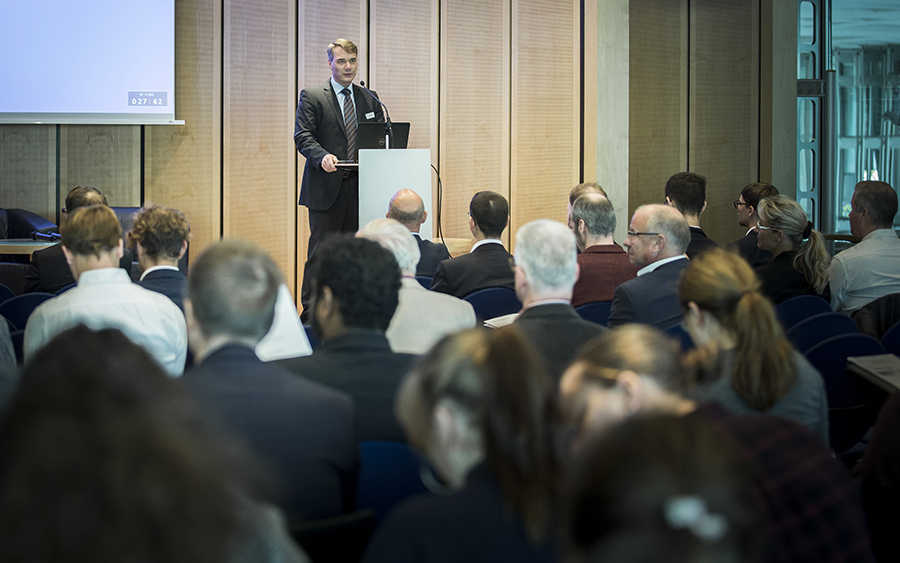In October an event of the annual symposium series ‘Trends in Minimally Invasive Medicine’ took place for the fourth time, topic this year: ‘Digitization in the OR’. It is a cooperation of the Technische Universität Berlin, Department of Medical Technology, Berlin Partner as well as WOM and offers an exchange between experts from medicine and medical technology.
Prof. Kraft: ‘Digitization in the OR’ was the theme of this year’s “Trends in Minimally Invasive Medicine” symposium. How do you explain to non-insiders which aspects are at stake?
Digitalization, i.e., the increasing use of digital technologies from digital sensors to mobile devices, currently characterizes numerous industries and we also encounter it in everyday life as “consumers.” This year’s ‘”rends in Minimally Invasive Medicine” symposium focused on the challenges and opportunities of these technologies in a highly developed, innovative segment of medicine, where an important goal is to reduce surgical trauma to patients. There are numerous special functions and features of the use of digital technologies that were discussed by experts from science, medical technology industry, and medical application during the symposium.
What benefits did the participants of the symposium see in the digitization for patients and surgical teams?
The advantages of digital technologies were summarized in a panel discussion after presentations by an innovation manager from a large medical technology company, a head of the IT division of a large hospital chain, and scientists from the Technical University of Munich and the University of Rostock. In summary, digitization is able to offer very different advantages. Therapy can be supported by advanced sensors, navigation systems, automation of processes, robotic systems, and applications of augmented reality. Decision-making processes are now supported by much simpler data collection and processing and artificial intelligence applications. The availability of data in the context of decision-making processes is also improved, for example, by mobile devices. Organizational processes benefit from simpler process documentation and evaluation with reference to quality management. The control of processes is simplified, surgery planning is facilitated, and entire networks of the IT infrastructure secure data transfer, data processing and communication in hospitals. Digital production processes, especially additive manufacturing processes, also offer numerous new options, such as the individualization of surgical instruments. The speakers presented various examples of all the opportunities for digitization mentioned above.
Is digitalization only a blessing or can it also be a curse?
Digitization is not a curse, but it does pose some challenges that have to be overcome and which were discussed during the symposium. Examples of this are the high demands placed on data security and data protection. In the context of artificial intelligence applications, the possible loss of “know-how” among users (with natural intelligence, which is then used less frequently) was discussed. If methods of machine learning are used, the traceability of calculation results must be guaranteed and process validation must also be carried out. If optimization is carried out with digitally supported OR process documentation, this can also be perceived as paternalism and lead to further consolidation of work processes. Digital manufacturing processes can fundamentally change value chains and role distributions of those involved. The introduction of numerous digital technologies requires change management. Financing new digital systems can also be a challenge.
What expectations does medicine have of medical device technology developers such as WOM or institutes such as your Technical University department in terms of digitization?
Digitization will prevail, regardless of whether we want to address the challenges it presents or not. Thus, one of the main expectations of medical technology developers in medicine is to recognize the potential of these technologies and to use them promptly in innovative technical solutions. Although some innovation hurdles in medical technology, such as high regulatory requirements and safety standards, delay the development of new, previously unknown technologies, the medical user expects that digital innovations in medicine will also become available immediately.
